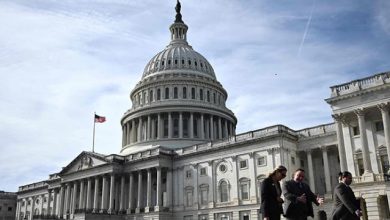Finance Bill 2023 – slew of additional taxes pushes the masses to the wall

ISLAMABAD (a1tv News) In order to secure the much-needed deal with the International Monetary Fund (IMF), Minister for Finance Ishaq Dar presented the Finance Supplementary Bill 2023 in the lower house.
The bill was presented in the National Assembly session in order to fulfill the conditions of the international lender to secure the much-needed loan programme that would help the country stave off default.
Under the budget proposals, General Sales Tax (GST) on luxury items will be increased from 17% to 25% and Federal Excise Duty (FED) on business and first-class air tickets will also be increased to Rs20,000 or 50% — whichever is higher. The finance minister also proposed imposing 10% withholding adjustable advance income tax on bills of wedding functions, and an increase in FED on cigarettes, soft and sugary drinks.
The FED on cement will be raised from Rs1.5/kg to Rs2/kg and an increase in GST from standard 17% to 18% was also proposed in the Finance Supplementary Bill 2023, while GST will not be imposed on essential goods including wheat, rice, milk, pulses, vegetables, fruits, fish, eggs and meat.
Under the Finance Supplementary Bill 2023, Mr Dar said that the government had suggested a Rs40 billion increase in the budget of the Benazir Income Support Programme (BISP) to protect downtrodden segments of the society from the impact of increasing inflation.
“The government has proposed to increase the BISP budget from Rs360 billion to Rs400, allocating Rs40 billion addition funds to benefit the (BISP) beneficiaries,” he said while presenting the Finance (Supplementary) Bill-2023 in Lower House of the Parliament.
He said the additional revenue measures, announced today, have nothing to do with the fiscal performance of the government.
Referring to the longstanding issue of Circular Debt in the power sector, Ishaq Dar said it was increased from 1,148 billion rupees to 2,467 billion rupees in a span of four years during the PTI government.
He said the circular debt was estimated to increase by 855 billion rupees this year, but as a result of incumbent government’s reforms measures, it will be brought down to 336 billion rupees.
Emphasising the need for energy reforms, he said the country cannot afford 1400 billion rupees losses in the Power Sector per annum.
The Finance Minister said the government has also envisaged structural reforms to bring improvement in the economy. He said the economy is expected to grow by four percent next year.
The Minister said we are also pursuing a programme to bring down fiscal and current account deficits. He pointed out that the State Bank of Pakistan has issued a priority list for the import of food items, pharmaceuticals and raw material for the export industry.





